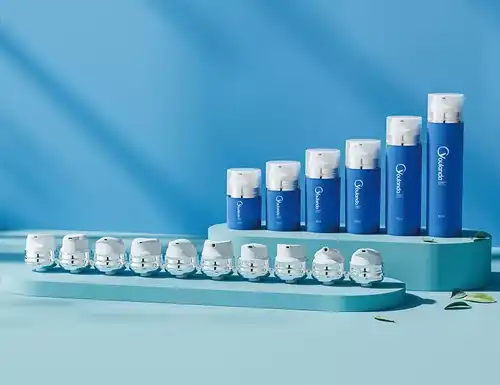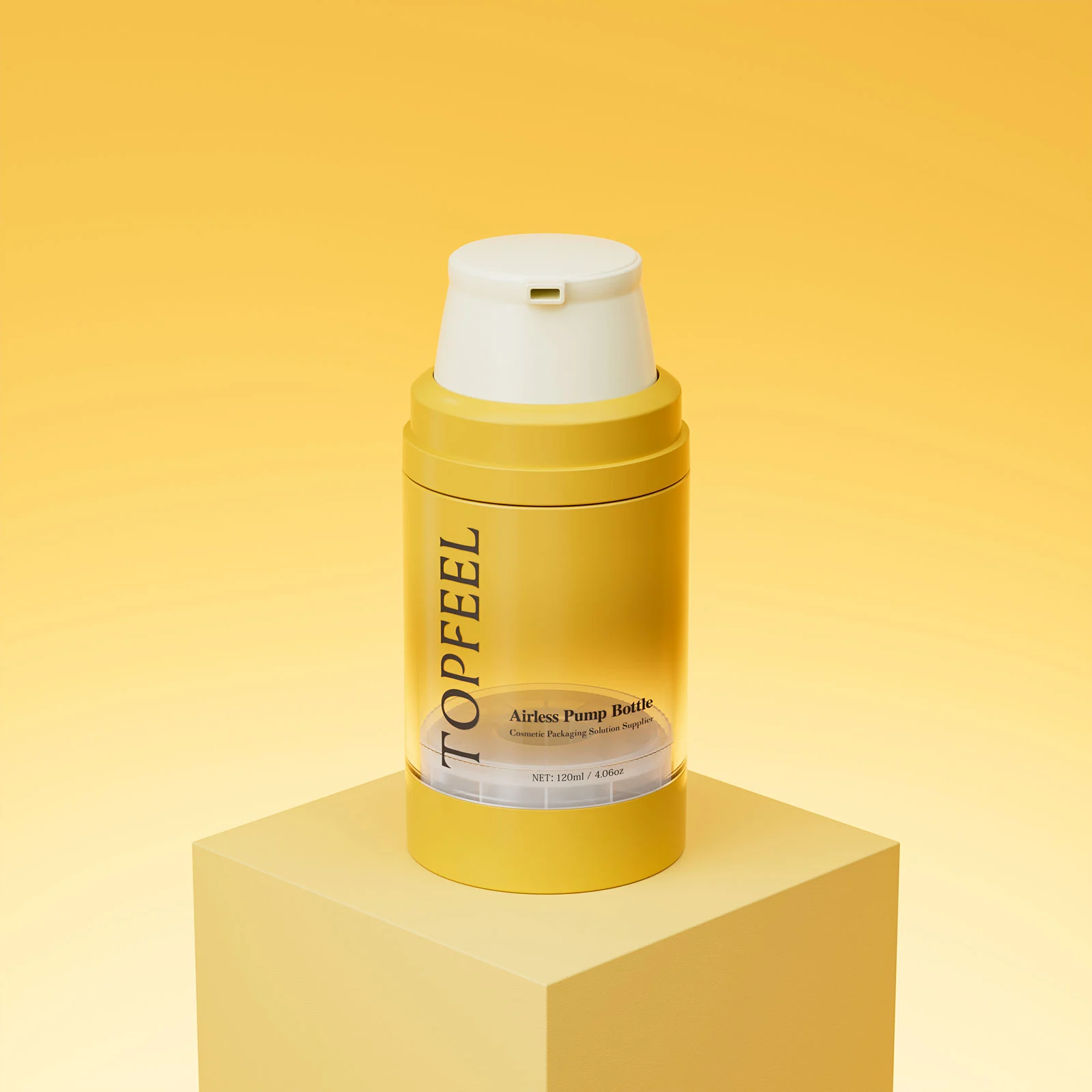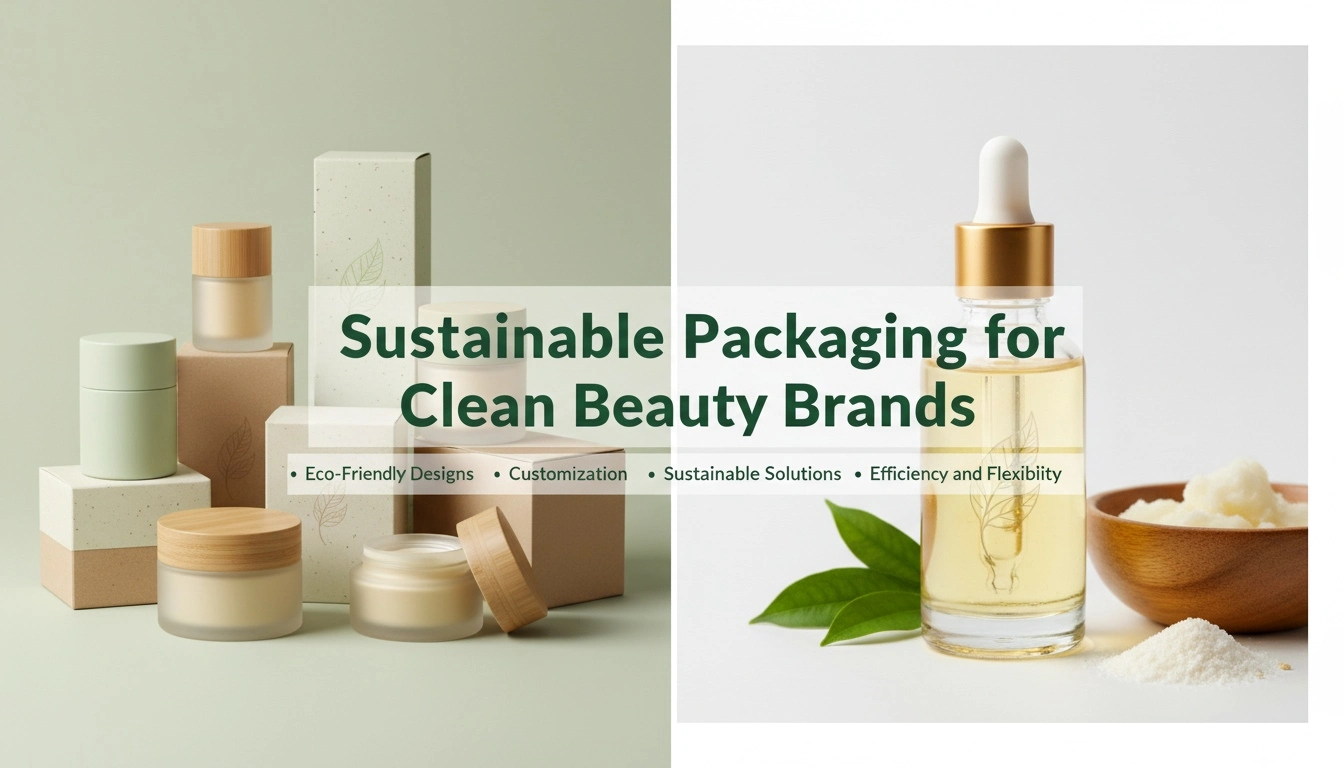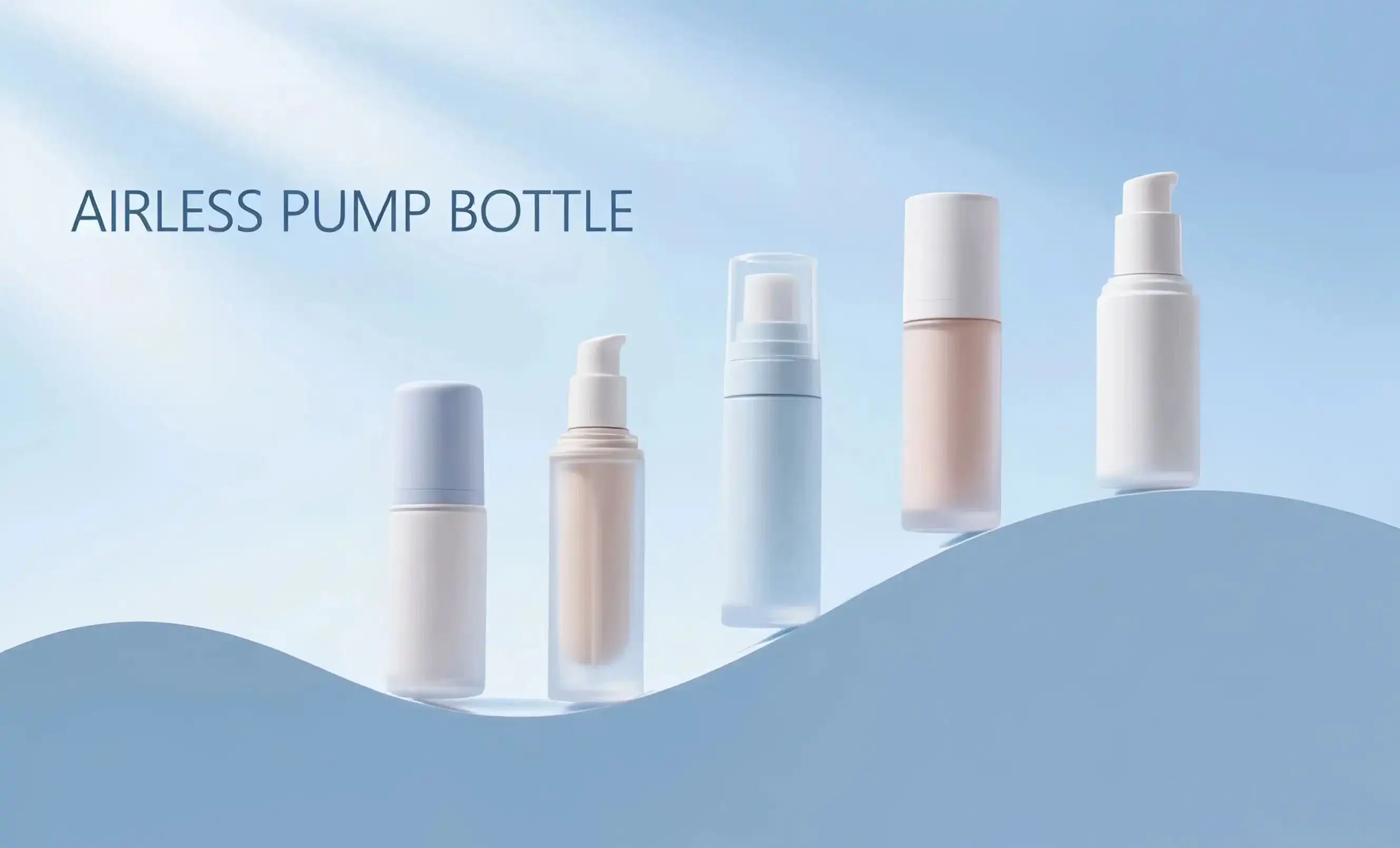When to choose 150ml over 100ml airless bottles for your products
Selecting the appropriate airless bottle size is a critical decision that can significantly impact your product's success. There are several scenarios where opting for a 150ml airless bottle makes more sense than its 100ml counterpart:
Premium skincare formulations
High-end skincare products often benefit from larger packaging. A 150ml airless bottle conveys a sense of luxury and value, aligning well with premium brand positioning. It allows for a more generous product quantity, which can be particularly appealing for serums, moisturizers, or treatments that require consistent, long-term use to show results.
Products with recommended liberal application
Some skincare products, such as body lotions, sunscreens, or facial mists, are meant to be applied generously or frequently. In these cases, a 150ml size ensures that users have an ample supply, encouraging regular use without the need for frequent repurchases.
Environmentally conscious brands
For brands prioritizing sustainability, larger bottles can be an eco-friendlier choice. By offering 150ml instead of 100ml, you're potentially reducing packaging waste and the frequency of shipments, which can lower the overall carbon footprint of your product line.
Home-use focused products
Products primarily designed for home use, where portability is less of a concern, are excellent candidates for 150ml airless bottles. This size is convenient for bathroom counters or vanities, providing a substantial amount of product for daily use over an extended period.
Cost efficiency analysis: 150ml vs 100ml airless packaging
When considering the cost efficiency of 150ml versus 100ml airless packaging, several factors come into play. Understanding these can help brands make informed decisions that balance profitability with customer satisfaction.
Production costs
Generally, the cost per unit of product decreases as the volume increases. This means that filling a 150ml airless bottle is often more cost-effective than filling one and a half 100ml bottles. The savings in materials, labor, and production time can be significant, especially for large-scale manufacturing.
Shipping and logistics
Larger bottles can lead to reduced shipping costs per unit of product. Transporting 150ml bottles instead of multiple 100ml bottles can result in fewer shipments, lower packaging requirements, and more efficient use of space in storage and during transit.
Pricing strategy
The 150ml size allows for more flexible pricing strategies. Brands can offer a better value proposition to customers by providing more product at a slightly higher price point, potentially increasing perceived value and customer loyalty.
Long-term customer value
Customers who purchase 150ml bottles may have a longer interval between purchases. While this might seem counterintuitive for sales, it can lead to increased customer satisfaction and loyalty, potentially resulting in higher lifetime customer value.

Travel-friendly or bulk use? Picking the right airless bottle size
The choice between travel-friendly 100ml bottles and larger 150ml options for bulk use is a crucial consideration for brands. Each size caters to different consumer needs and usage scenarios.
Travel regulations and convenience
100ml bottles remain the go-to choice for travel-friendly products due to airline restrictions on liquids. These smaller bottles easily fit into carry-on luggage, making them ideal for frequent travelers or for brands targeting a mobile lifestyle.
Extended use and value perception
The 150ml airless bottle is perfect for products intended for extended use at home. It offers a perception of better value, which can be particularly appealing for daily-use items like facial cleansers, toners, or body lotions. Consumers appreciate having to repurchase less frequently, which can enhance brand loyalty.
Product efficacy and preservation
Airless technology in both 100ml and 150ml bottles helps preserve product integrity by minimizing air exposure. However, the 150ml size may be more suitable for products with a longer shelf life or those that maintain their efficacy over extended periods, ensuring that the larger quantity remains usable throughout its lifespan.
Brand positioning and market segment
The choice between 100ml and 150ml can also reflect your brand's positioning. Luxury or professional-grade skincare lines might lean towards the larger 150ml size to emphasize quality and long-lasting results. In contrast, brands focusing on convenience or targeting a younger, more mobile demographic might prefer the 100ml option.
In conclusion, the decision between 150ml and 100ml airless bottles should be based on a thorough understanding of your product, target market, and brand strategy. While the 150ml airless bottle offers benefits in terms of cost efficiency and perceived value, the 100ml size remains crucial for travel-friendly options. The key is to align your packaging choices with your customers' needs and usage habits.
Are you a skincare brand owner, product manager, or purchasing decision-maker looking for the perfect airless bottle solution? At Topfeelpack, we specialize in advanced airless packaging that preserves product effectiveness and extends shelf life. Our commitment to sustainability, fast customization, and competitive pricing makes us the ideal partner for your packaging needs. Whether you're leaning towards a 150ml airless bottle for your premium line or need a mix of sizes to cater to different market segments, we have the expertise to guide you. Don't compromise on quality or efficiency – reach out to us today at pack@topfeelgroup.com to discuss how we can elevate your product packaging with our innovative airless bottle solutions.
References
- Journal of Cosmetic Science: "Airless Packaging: Preserving Product Integrity in Skincare Formulations"
- Packaging Technology and Science: "Consumer Preferences in Cosmetic Packaging: A Comparative Study of 100ml and 150ml Sizes"
- International Journal of Retail & Distribution Management: "The Impact of Package Size on Consumer Behavior in the Beauty Industry"
- Sustainability in Packaging: "Environmental Implications of Cosmetic Container Sizes"
- Beauty Packaging Magazine: "Trends in Airless Technology for Skincare Products"
- Global Cosmetic Industry: "Market Analysis: Consumer Preferences in Skincare Packaging Sizes"


 - 副本_1745399213966.webp)

_1747827716538.webp)

